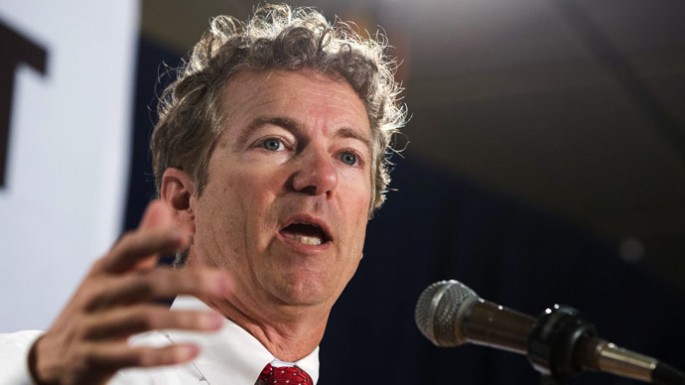Can a libertarian Republican win the White House? Senator Rand Paul (R-KY) joined the presidential race on Tuesday. He is taking an untested path of a conservative platform with a trace of libertarianism, to win the Republican primary and White House.
Past Republicans who ran for president as libertarians include Barry Goldwater (1964), and Ron Paul (2008, 2012).
While addressing a rowdy crowd of 1,500 in a downtown Louisville hotel, Paul claimed that his message is for "all Americans." He explained that this included all classes and ethnicities.
The Senator argued that the time was right for a "new way." This would require those who have achieved the American dream to eliminate their barrier with "the other America."
Republicans traditionally require their unconventional presidential candidates to shift to rightwing ideologies. Paul is the only GOP (Grand Old Party) candidate who supports more supervision of federal intelligence agencies, and less strict drug laws.
In fact, Paul promised to end the "unconstitutional surveillance" of domestic phone data, on his first day in office.
Paul does not seem to be thinking just about the elections in 2016 and 2012. He is trying to "remake" the GOP, according to Slate.
Paul will be joining what political pundits predict will include several Republican governors, senators, and repeat GOP nomination candidates. However, he will also be competing against traditional Republican politics that date back to President Ronald Reagan.
Paul's campaign will be the only one that believes the GOP can win the biggest prize in 2016 by getting more votes from non-whites, according to New York Times. Based on a U.S. Census Bureau report, whites will become the country's minority ethnicity by 2045.
All of the Republican candidates believe that their party must increase in size. However, they differ on their approach.
Republicans have an uphill battle to attract minorities and young voters. In 2012, exit polls showed that President Obama won 80 percent of non-white voters, and 60 percent of voters aged 18 to 29.
Still, an Indiana University student who attended Paul's Louisville speech believes that the GOP candidate can appeal to several generations. He thinks Paul can "tie" them together.



























